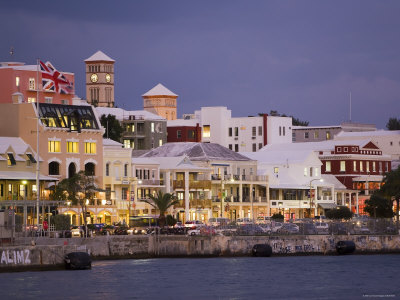Whilst profitability remains under pressure after a trying 2017, Bermudian reinsurers have proven resistant to losses thanks to strong capitalisation, positive pricing, low exposures, and conservative reserving practices, according to Fitch Ratings’ latest peer review of the sector.
 2017 was a year of record-breaking catastrophe losses, with Hurricanes Harvey, Irma, and Maria, as well as the California wildfires, having a significant impact on Bermuda reinsurers’ underwriting profits.
2017 was a year of record-breaking catastrophe losses, with Hurricanes Harvey, Irma, and Maria, as well as the California wildfires, having a significant impact on Bermuda reinsurers’ underwriting profits.
Although market pricing has turned positive so far this year, the sector also continues to deal with low investment yields, and the ability of Bermuda reinsurers to absorb 2017’s catastrophe losses will remain an important factor in the coming months.
Brian Schneider, Senior Director at Fitch, commented: “Bermuda reinsurers typically maintain very strong capitalization while keeping leverage modest, which will serve them well as they continue to work through sizable catastrophe losses and shrinking profits.”
Fitch also observed that Bermuda reinsurers have successfully reduced their overall net catastrophe exposures in the last few years by transferring much of their business to the capital markets.
“The willingness of the capital markets to accept a lower price for catastrophe risk has helped to reduce the financial impact to Bermuda reinsurers,” explained Schneider.
The Bermuda re/insurers discussed by Fitch, which includes Arch, Axis, PartnerRe, RenRe, XL, and Validus, write a variety of reinsurance, insurance, life and health, and other segment business, which is diversified by both geography and product, although RenRe and PartnerRe are effectively pure reinsurance providers.
Four of these six companies reported an underwriting loss in 2017, with RenRe and Validus posting the highest combined ratios at 138% and 123% respectively, due to their heavier property catastrophe exposure.
From 2013 to 2017, this group of Bermuda re/insurers derived 83% of their total non-life underwriting income from reinsurance, with 7% from insurance, and 10% from other.
In contrast, the same group wrote 48% of their non-life gross premiums in reinsurance, 48% in insurance, and 4% in other over the same period, as insurance business proved less profitable, but also less volatile than reinsurance.
All six Bermuda re/insurers also remain in very strong reserve positions thanks to conservative reserving practices, with PartnerRe currently viewed as the strongest, according to Fitch.
Additionally, Fitch found that retention ratios for each of the six Bermuda re/insurers have declined since 2013, while reinsurance recoverables increased due to recoveries from the 2017 catastrophe losses, but remain manageable overall.


